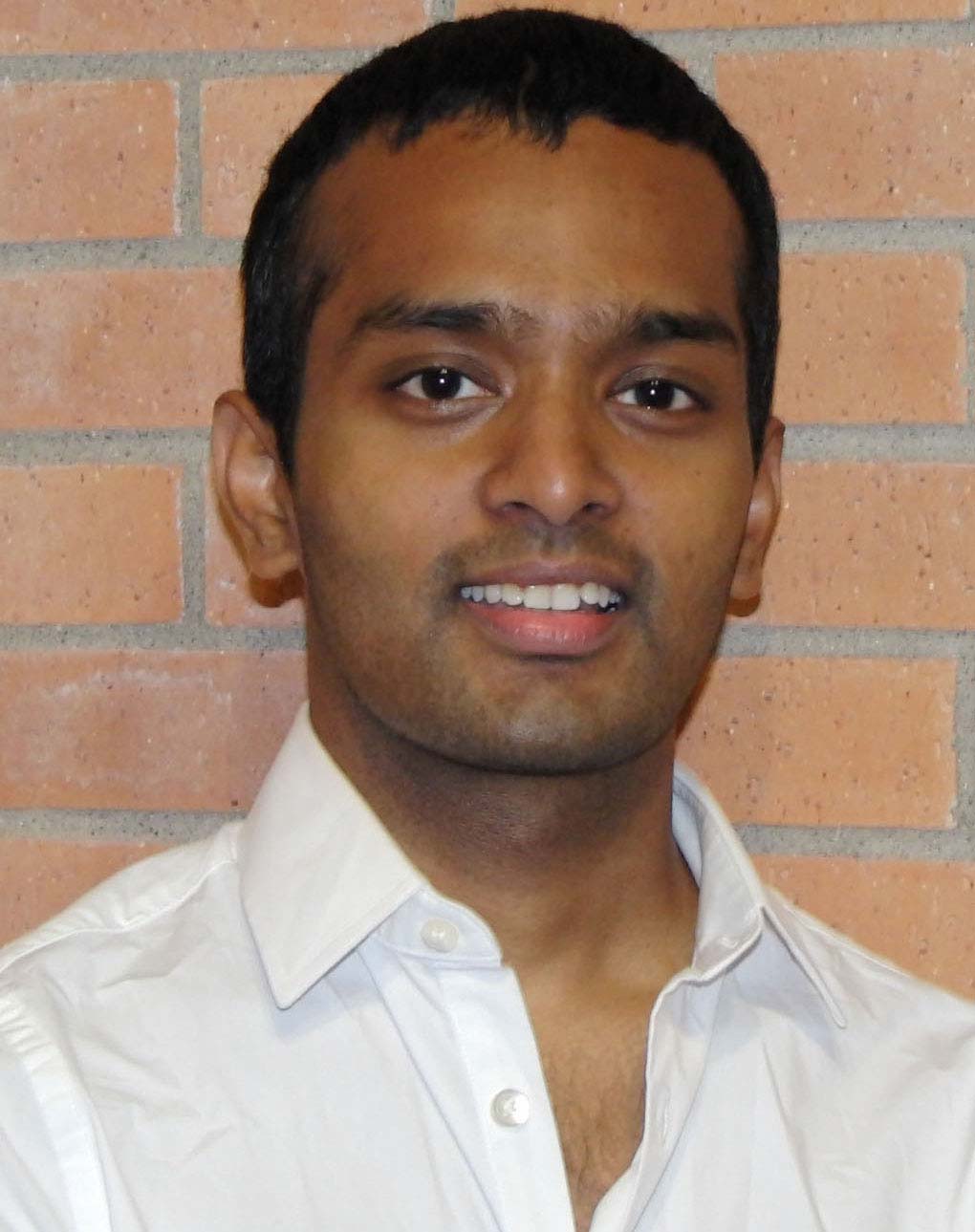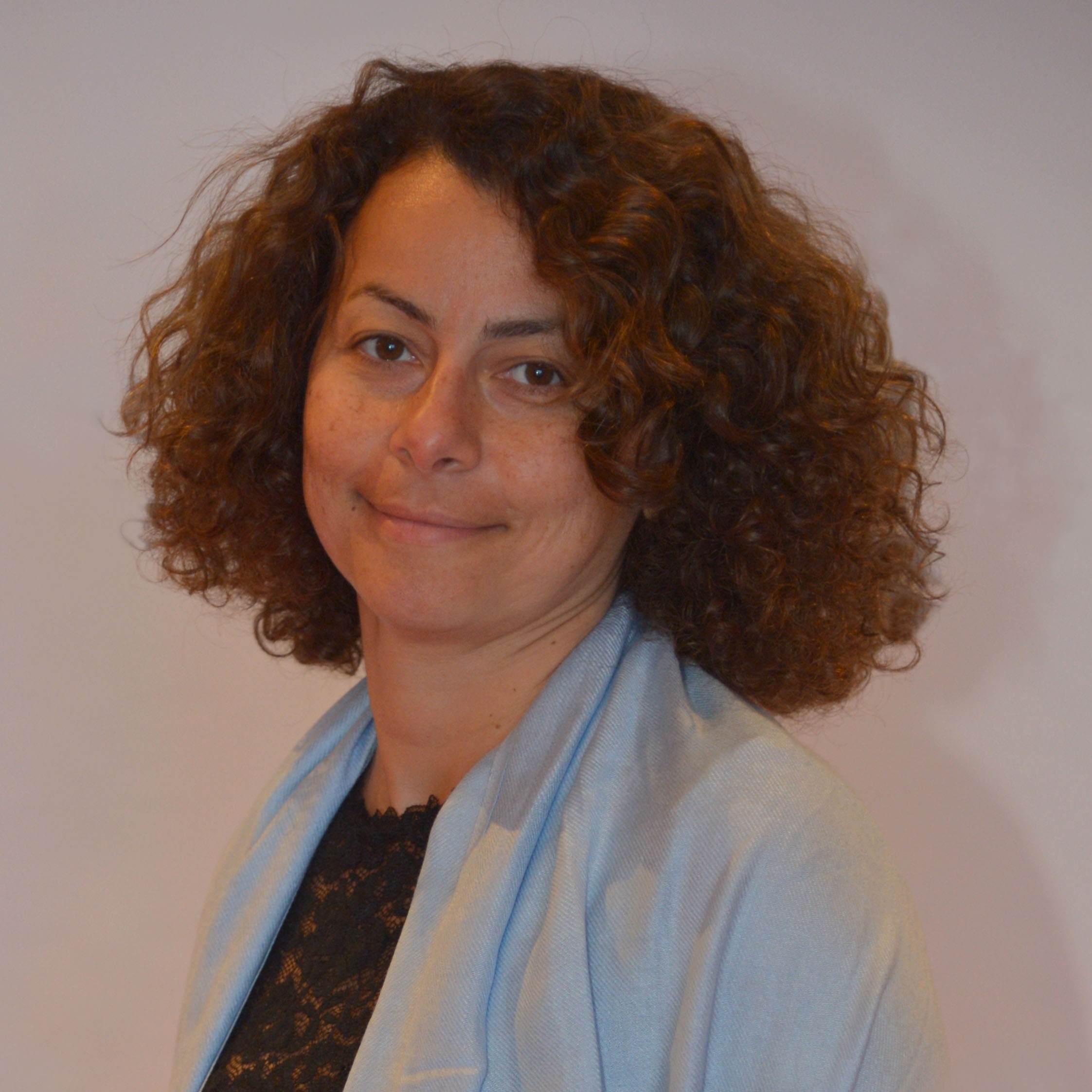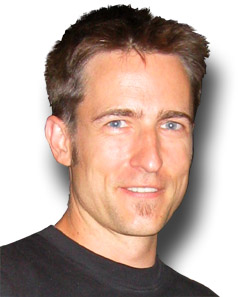Keynote: Shyam Gollakota – University of Washington, US
Tuesday 23 June 2020 17:00-18:00 CEST / UTC+2
Insect-scale Wireless Robotics
The concept of insect-scale robotics has long been in the realm of science fiction rather than reality. This is particularly challenging because of the extreme size, weight and power (SWAP) requirements for sensing, computing, communication, actuation as well as the need to power such wireless systems. In this talk, I will present a sequence of recent and ongoing research projects that design programmable wireless technologies to enable insect-scale wireless robots as well as hybrid insect-robot systems.
 Biography: Shyam Gollakota is an Associate Professor of Computer Science & Engineering at the University of Washington. His research covers a range of topics, including bio-robotics, computer networks, user interfaces, battery-free computing and mobile health. His work has led to three startups, Jeeva Wireless, Sound Life Sciences and Edus health, has been licensed by ResMed Inc and is in use by hundreds of thousands of users. He is the recipient of a 2015 National Science Foundation Career Award, an Alfred P. Sloan Fellowship and the SIGMOBILE Rockstar award. He was named as MIT Technology Review’s 35 Innovators Under 35, Popular Science ‘brilliant 10’ and twice to the Forbes’ 30 Under 30 list. His group’s research has earned Best Paper awards at MOBICOM, SIGCOMM, SenSys, NSDI and CHI, appeared in Science Translational Medicine and Nature Digital Medicine as well as named as a MIT Technology Review Breakthrough technology of 2016 as well as Popular Science top innovations in 2015. I am an alumni of MIT (Ph.D., 2013, winner of ACM doctoral dissertation award) and IIT Madras.
Biography: Shyam Gollakota is an Associate Professor of Computer Science & Engineering at the University of Washington. His research covers a range of topics, including bio-robotics, computer networks, user interfaces, battery-free computing and mobile health. His work has led to three startups, Jeeva Wireless, Sound Life Sciences and Edus health, has been licensed by ResMed Inc and is in use by hundreds of thousands of users. He is the recipient of a 2015 National Science Foundation Career Award, an Alfred P. Sloan Fellowship and the SIGMOBILE Rockstar award. He was named as MIT Technology Review’s 35 Innovators Under 35, Popular Science ‘brilliant 10’ and twice to the Forbes’ 30 Under 30 list. His group’s research has earned Best Paper awards at MOBICOM, SIGCOMM, SenSys, NSDI and CHI, appeared in Science Translational Medicine and Nature Digital Medicine as well as named as a MIT Technology Review Breakthrough technology of 2016 as well as Popular Science top innovations in 2015. I am an alumni of MIT (Ph.D., 2013, winner of ACM doctoral dissertation award) and IIT Madras.
Keynote: Lama Nachman – Intel Labs, US
Wednesday 24 June 2020 17:00-18:00 CEST / UTC+2
Amplifying Human Potential with AI
While AI brings great potential to improve many aspects of our lives, it also raises concerns regarding employment, privacy, safety and many others. It is time to change the narrative from human / AI competition to human / AI collaboration. AI can be utilized to amplify human potential, to assist people in everyday life, from education to manufacturing to supporting our most vulnerable population. However, to enable AI to venture into the real world and work closely with people, we need to develop contextually aware technologies that are built on robust and ethical AI. In this talk we will discuss our research in different applications as well as robust and ethical perception utilizing multi-modal sensing and sensemaking and probabilistic computing.
 Biography: Lama Nachman is an Intel fellow and Director of Anticipatory Computing Lab in Intel Labs. Her research is focused on creating contextually aware experiences that understand users through sensing and sense making, anticipate their needs and act on their behalf. She leads a multi-disciplinary team of researchers that explore new user experiences, sensing systems, algorithms and applications and transfer these capabilities to biz units to impact future Intel products. Lama has 24 years of experience in the areas of context aware computing, multi-modal interactions, sensor networks, computer architecture, embedded systems and wireless technologies. One of the most notable achievements of Nachman’s career is an Intel collaboration with Professor Stephen Hawking. Beginning in 2012, she led a team of researchers who developed a new software platform and sensing system to help Hawking communicate. Subsequently, she also led the effort to take that technology to the open source community, enabling people with disabilities worldwide to communicate using limited input and live as independently as possible. Prior to joining Intel, Lama has held senior positions at Ubicom Inc, Weave Innovations and Microsoft Corporation. Lama received her MS and BS in computer engineering at the University of Wisconsin-Madison.
Biography: Lama Nachman is an Intel fellow and Director of Anticipatory Computing Lab in Intel Labs. Her research is focused on creating contextually aware experiences that understand users through sensing and sense making, anticipate their needs and act on their behalf. She leads a multi-disciplinary team of researchers that explore new user experiences, sensing systems, algorithms and applications and transfer these capabilities to biz units to impact future Intel products. Lama has 24 years of experience in the areas of context aware computing, multi-modal interactions, sensor networks, computer architecture, embedded systems and wireless technologies. One of the most notable achievements of Nachman’s career is an Intel collaboration with Professor Stephen Hawking. Beginning in 2012, she led a team of researchers who developed a new software platform and sensing system to help Hawking communicate. Subsequently, she also led the effort to take that technology to the open source community, enabling people with disabilities worldwide to communicate using limited input and live as independently as possible. Prior to joining Intel, Lama has held senior positions at Ubicom Inc, Weave Innovations and Microsoft Corporation. Lama received her MS and BS in computer engineering at the University of Wisconsin-Madison.
Keynote: Patrick Baudisch – Hasso Plattner Institute, Germany
Thursday 25 June 2020 15:30-16:30 CEST / UTC+2
The six challenges for personal fabrication
Fabrication tools, such as 3D printers, laser cutters, and milling machines have been used widely in industry for over 30 years. When the original patents expired, however, these technologies started to hit a new user base—the makers. Today, we are about to witness another transition as the first fabrication devices are trying to target at an even less techsavvy audience—consumers. This spreading of technology from industry to enthusiasts to consumers suggests that fabrication could be steering for a future in which hundreds of millions of users with no technical background have access to this class of technology. The key question is: how much impact will this evolution really create—and based on what exact promise? In this talk, Patrick Baudisch will argue that 3D printing and personal fabrication in general are about to bring massive, disruptive change to interactive computing, as well as to computing as a whole. He discusses the six challenges that need to be addressed for this change to take place, and explain why he think researchers in HCI will play a key role in it.
 Biography: Patrick Baudisch is a professor in Computer Science at Hasso Plattner Institute at Potsdam University and chair of the Human Computer Interaction Lab. After working on mobile devices, touch input, and natural user interfaces for several years, his current research focuses on personal fabrication, i.e., how to world will change as a result of 3D printers, laser cutters, and the like. Previously, Patrick Baudisch worked as a research scientist in the Adaptive Systems and Interaction Research Group at Microsoft Research and at Xerox PARC. He holds a PhD in Computer Science from Darmstadt University of Technology, Germany. He was inducted into the CHI Academy in 2013 and has been an ACM distinguished scientist since 2014. Since 2019, he has been the chair of the SIGCHI Research and Practice Awards subcommittee.
Biography: Patrick Baudisch is a professor in Computer Science at Hasso Plattner Institute at Potsdam University and chair of the Human Computer Interaction Lab. After working on mobile devices, touch input, and natural user interfaces for several years, his current research focuses on personal fabrication, i.e., how to world will change as a result of 3D printers, laser cutters, and the like. Previously, Patrick Baudisch worked as a research scientist in the Adaptive Systems and Interaction Research Group at Microsoft Research and at Xerox PARC. He holds a PhD in Computer Science from Darmstadt University of Technology, Germany. He was inducted into the CHI Academy in 2013 and has been an ACM distinguished scientist since 2014. Since 2019, he has been the chair of the SIGCHI Research and Practice Awards subcommittee.


